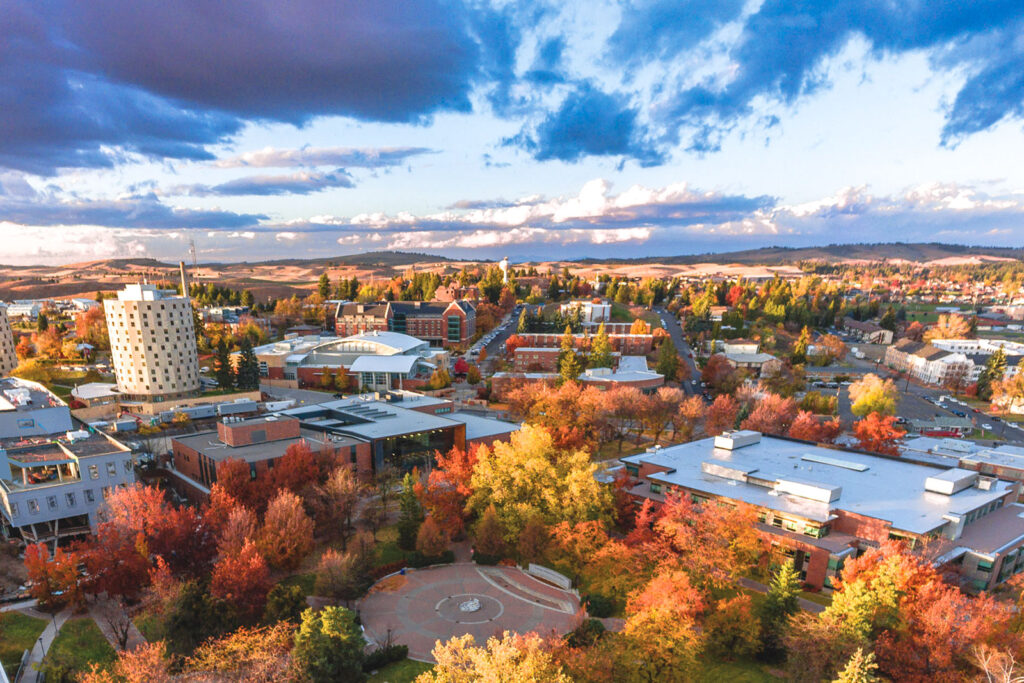Sustainability
Learn about all the sustainability efforts across campus.
Eastern Washington University is committed to becoming a carbon-neutral institution and a leader in sustainable practices. The pathway to decarbonization is through sound scientific practices based on industry-leading methods and technology. From examining campus buildings to rethinking landscapes, there are several ways to support and get involved with campus sustainability.
Get Involved
Learn about how Faculty, Staff, students and the community can be involved with EWU’s sustainability initiatives.
Sustainability at EWU
Learn about the EWU Climate Action Plan and what our goals are for creating a more carbon-neutral campus.
Student Experience
Learn about the sustainability minor and research opportunities through various EWU departments.
Landscape Vision
EWU is working on a new campus landscape vision that champions sustainability, climate resiliency, and environmental responsibility. The landscape will reflect a safe, resilient, historical, cultural, and attractive aesthetic that serves as an educational resource while demonstrating the values of EWU.

The Prairie Restoration Project
EWU is the only university to dedicate a third of our campus land and resources for students to actively participate in a real-world, multidisciplinary project designed to restore a threatened ecosystem in our region.
Our students are at the center of the project. Through collaboration among programs across campus the project offers tangible, real-world experience for our students to apply research in a collaborative way.
Student Prairie Research
Community Connection
We want to cultivate rich and reciprocal relationships. Many of the plants in the prairie ecosystem are culturally significant to Native Americans for food, medicine, art materials and more. The Prairie Restoration project will provide renewed access and educational opportunities for local tribes and will be the home of the Lucy Covington Initiative.
Eastern students, staff and faculty members have been working with local experts to bring at the prairie back to life. Among those participating is EWU alumna Melodi Wynne, ’07, (featured in the Eastern Magazine article) a citizen of the Spokane Tribe who has become a leader in the movement to restore “food sovereignty” to the Native peoples of the Upper Columbia Plateau. The Sovereignty Through Sustainability event at EWU addresses critical topics such as drought and climate change, water law, salmon runs, Tribal history and culture, food sovereignty and natural resources restoration.





